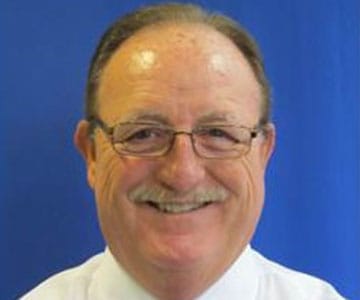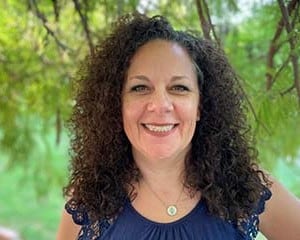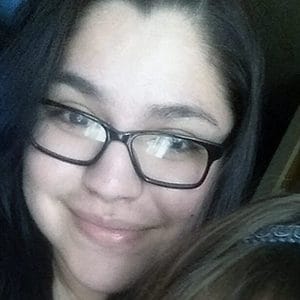Diagnostic Medical Sonography instructor goes above and beyond to make sure students succeed

Darrell Reed can relate to new students trying to overcome their discomfort of speaking up in class. After a little over two years at the front of his Diagnostic Medical Sonography class, he has learned to relax into his front-and-center position at the podium.
“It was rough at first, but I got used to it after a couple of weeks,” he confesses. “I used to hold a little rubber ball and squeeze that while giving lectures to take away the nervous tension. I felt more comfortable with it.”
Darrell had already enjoyed a comfortable career in the medical field as a licensed radiologist and nuclear medicine department manager before easing into semi-retirement. He was surprised one day to get a call from an employment agency asking him to consider a teaching position at SJVC Bakersfield.
“I had trained students in different lab procedures, but I had never taught in a classroom setting,” he says. “This would be a new experience for me.”
Darrell was a natural – rubber ball or not.
“I want to share what I know and what I’ve learned over the years, and help these young people get somewhere in this field; I want them to succeed,” says Darrell.
“Mr. Reed is not only an outstanding instructor, but a better mentor,” says student, Leanna Lopez. “He really listens and does anything in his power to make sure we succeed, learn, and – most importantly – he finds a way to help us believe in ourselves.”
After several years in the nuclear medicine business, Darrell still has many connections with hospitals and imaging facilities. He personally networks with employers to line-up extern sites for students and job interviews for those about to graduate.
“Darrell works tirelessly securing extern sites for his Diagnostic Medical Sonography students, often traveling throughout the San Joaquin Valley, in addition to teaching and mentoring his students,” says Department Manager, Michael Rugnao.
He also grooms his students to be their professional best.
“I try to dress professionally, wear shirt, slacks and tie every day,” says Darrell. “I try to project that professionalism to my students so that when they get out into the field, they will reflect that professionalism. And they will treat their patients and their families in a professional manner.”
Darrell realizes that there is a lot of competition for these medical positions, and he wants his graduates to shine in their skill, education and communication levels. He encourages his students to take the SPI (Specialty Physics and Instrumentation) exam that employers require since recent laws and regulations were passed.
“Our students are doing very well, and most are getting their specialty licenses before they even finish the program,” says Darrell.
Darrell tries to make the perfect match between his students and extern sites, but occasionally the chemistry or expectations are just not there.
“I worked with one young lady who others had given up on or just didn’t want to work with,” says Darrell. “She had a tough time with her first clinic, and she was at risk of not completing the program. I think she finally came to appreciate what I was doing for her, and just blossomed at the next site.”
She just recently completed her program. “I was so proud to see her move on and be successful,” says Darrell. “It just makes my job worthwhile.”
He has practical life lessons and advice for any of his students who find themselves tripped up on the rigors of their program. “Clinic will be different from school, and I promise you’re really going to enjoy it,” Darrell assures them. “They normally come back and say, ‘You’re right, Mr. Reed. It’s different out here and we love it.’”
Darrell Reed’s efforts – large and small – are soundly appreciated at the Bakersfield campus. He has arranged hospital donations of several large pieces of imaging equipment to the college at a value of $500,000. He was recently presented with the Excellent Community Engagement award by Kelly Macy, Campus Director.
Darrell is carving out a legacy of unwavering support for his students, one student at a time. And he loves it.
“I enjoy getting up every day and coming to work with students and faculty,” he says. “It’s more than just a job to me. I could make more money if I was working in the field, but I would work here for free. Teaching at this one campus is all I know; and I just really want to see the students succeed.”
With that kind of support and commitment, how can they not?
You might also like
More stories about
Request Information
All fields using an asterik (*) are required.

